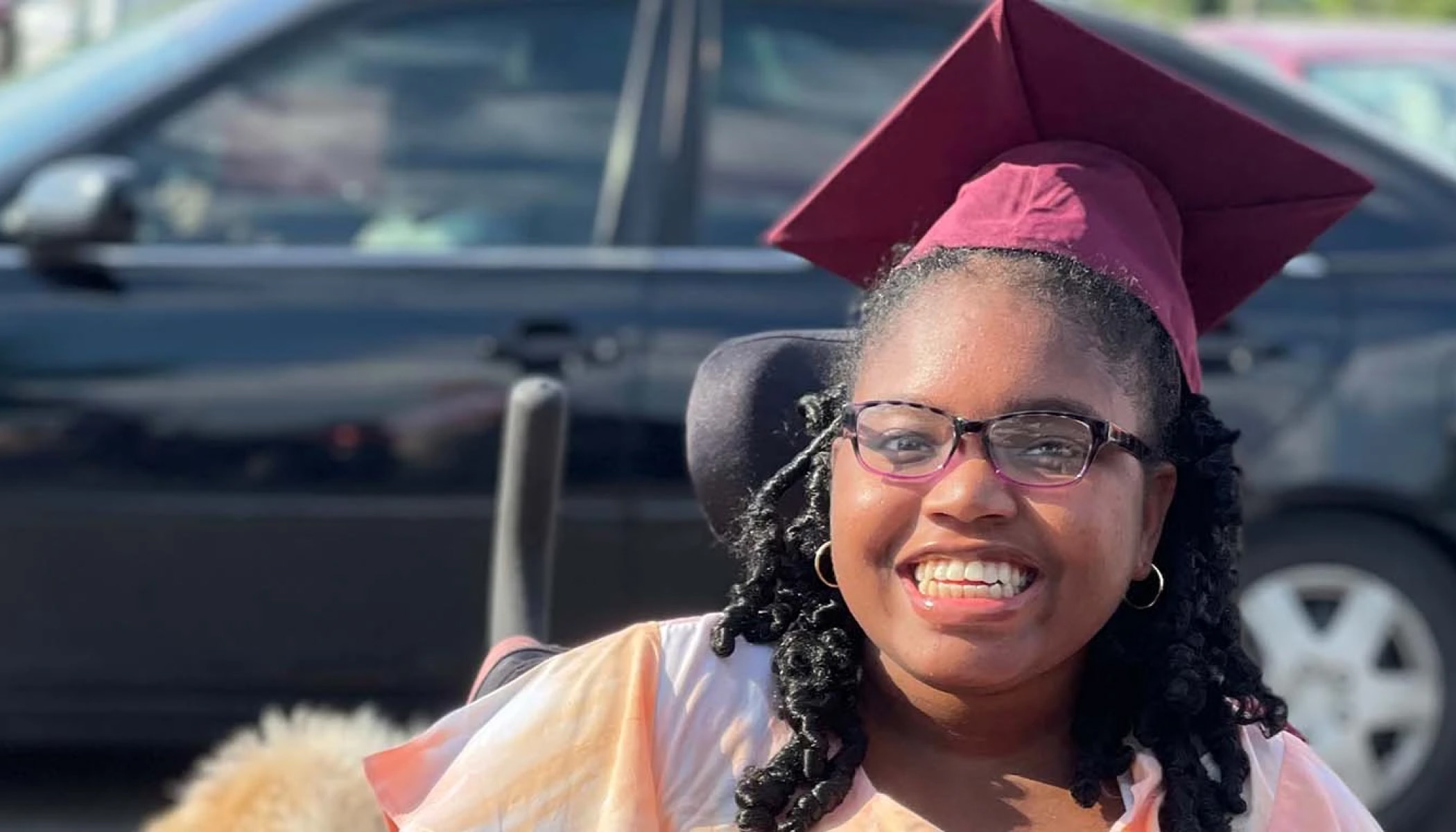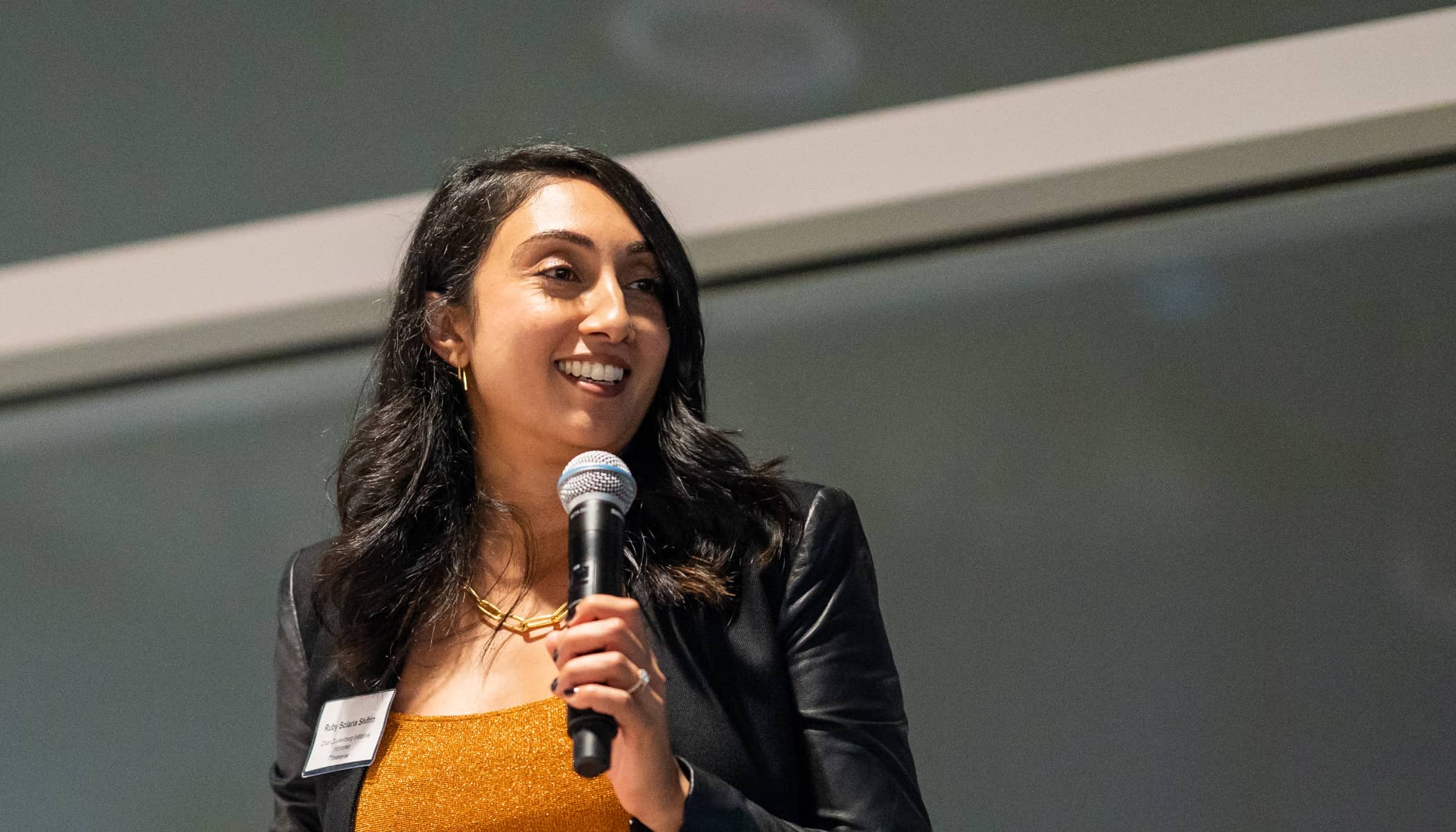Apr 30, 2019 · 9 min read
Behind the Movement with Daryl Atkinson
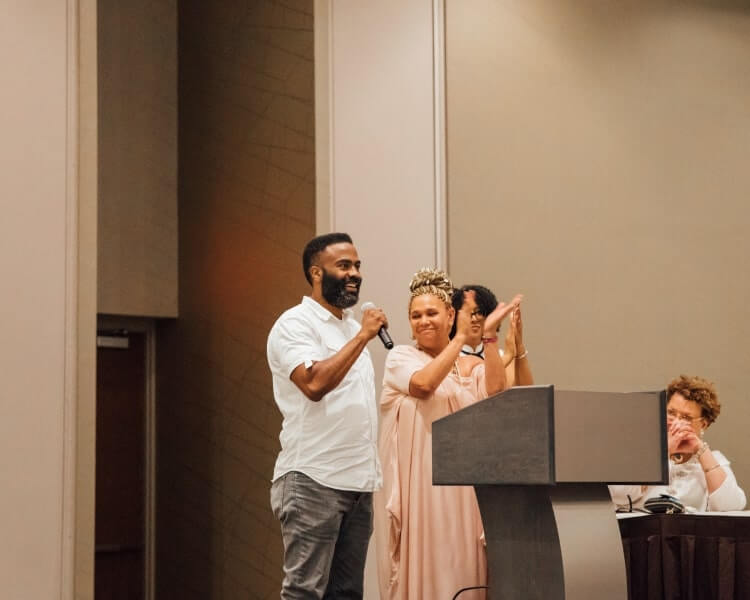
Progress on many of the world’s most pressing issues is driven by fearless leaders who stand with their communities and build movements that effect change. This series highlights those courageous and innovative people on the frontlines and their bold missions to create a more equitable and inclusive future for all.
Meet Daryl Atkinson.
Daryl Atkinson wears his passion on his sleeve. And he’s devoted his life after incarceration to fighting for the racial, social, and economic justice for impacted people in the South. It’s a tireless fight, but his movement is met with support from allies across the country.
Daryl has served as the Co-director of Forward Justice in Durham, N.C., for two years. Activism has always been in his DNA, and he’s deeply committed to the work, the community, and the cause. Forward Justice, formerly Repairers of the Breach, expands opportunities for people impacted by injustice by organizing people and organizations, changing policies and laws, and shifting narratives and culture.
Daryl’s leadership and work at Forward Justice have directly impacted millions of formerly incarcerated people. He and his movement allies continue to build power and work toward victories.
They are people who are tired of the misplaced allocation of their tax dollars on a paradigm of punishment instead of a paradigm of accountability.
Describe the people who are on the frontlines alongside of you. Why do they join the movement?
One in two families has been touched by incarceration on some level. So this is all of us.
They are directly impacted people. They are family members who have directly impacted people. They are people who are tired of the misplaced allocation of their tax dollars on a paradigm of punishment instead of a paradigm of accountability. They are faith folks. They are, you know, a broad cross-section of this country.
We’re trying to build a movement that’s representative of this population so we can truly live up to the aspirational values of this country.
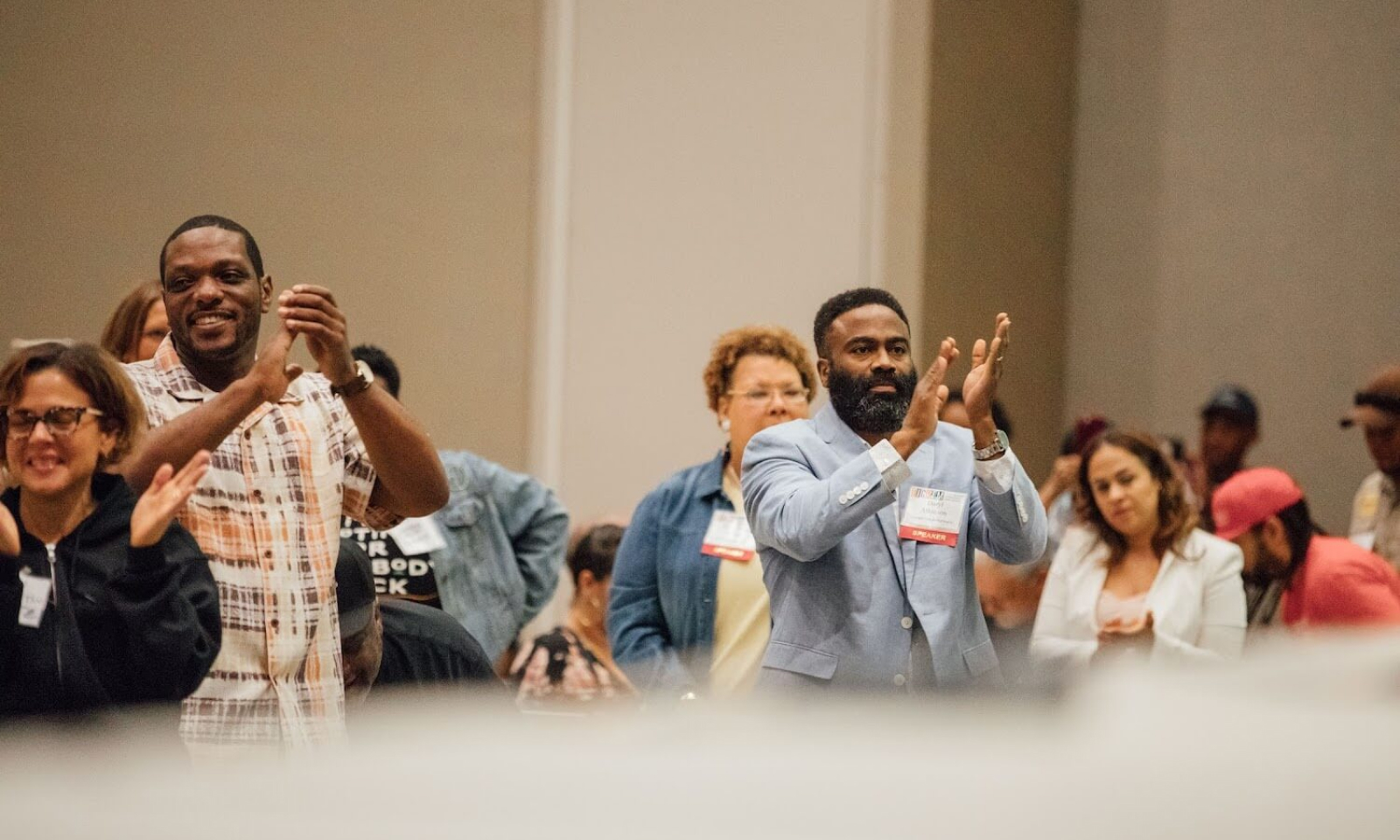
How did your experience with incarceration inspire you to go back to school, get a law degree, and join a movement to advance racial, social, and economic justice?
Proximity to these issues fuels my passion. Passion fuels longevity. Longevity fuels a legacy.
You know, I didn’t one day decide I wanted to do this kind of work. My life trajectory propelled me in that direction. In 1996, I was convicted of drug trafficking and sentenced to 10 years in prison at the Alabama Department of Corrections. I languished inside minimum-, medium-, and maximum-security institutions. The last institution I left was St. Clair Correctional Facility where 60% of the population had life without parole. You would ask those young men how much time they had, and they would say “all of it” because they were never coming home.
It was there that I met a jailhouse lawyer who really inspired me and showed me the transformative ability of the law. His name was James McConico and he wanted to meet me because he heard that I had a little bit of college education prior to coming inside. He essentially created a nonprofit law firm behind the wall, and for 20 months we’d work on cases together.
The transformative piece for me was seeing the men who had given up. They weren’t taking care of their hygiene. They weren’t accepting visits from their families. They were hopeless. But to then see them walk around with a sense of purpose and a sense of hope, even though they were in the most dire circumstances, I left that experience knowing I wanted to use the law and whatever skills I could acquire to be able to provide that for other folks.
So, once I got out, I returned home to a loving family that could provide me with food, clothing, and shelter. I didn’t have those immediate pressures and responsibilities pressing down upon me. I went back to school and got my associates degree, bachelor’s degree, and law degree. I worked in the Obama Administration and was recognized as a White House Champion of Change.
But I tick off those individual accomplishments on the resume not because I think that there was anything so exceptional about me. I’m a pretty regular guy with a regular skill set. I left 100 brilliant men behind the wall.
The only thing that separated me from them is access to opportunity. And so I’ve devoted my career and life to try to create opportunity for those other folks because I believe we can have a country full of success stories that ushers in a new America.
The only thing that separated me from them is access to opportunity. And so I’ve devoted my career and life to try to create opportunity for those other folks because I believe we can have a country full of success stories that ushers in a new America.
People in the South have long suffered from inequalities. You see that fight every day, so what exactly does it look like? Why is it important that you do the work in this region?
We’re committed to working with our movement partners to usher in what we’re calling a “third reconstruction.”
So, when you think of the first reconstruction, you had the passage of the 14th and 15th Amendments, and the 13th Amendment was remixed, if you will. From 1870 to 1877, over 1,500 black officials were elected across the South into various levels of government. Radical advances like public education to newly freed slaves came into being as well as the ending of involuntary servitude of people of color.
Now, let’s usher into the second reconstruction. There was the passage of the Voting Rights Act, Civil Rights Act, and Fair Housing Act. We saw a huge interruption in education and affirmative action cases to try and address remedial harm that black folks have suffered because of structural racism. We also saw modifications to how our criminal laws were being used as a system of control.
For this third reconstruction, we need to have real substantive and transformative legal changes. We know that we have to expand access to the franchise and also make it easier to vote. We need to institute campaigns that can restore voting rights and modify the criminal legal system to make it more just and equitable. And then lastly, we once again need to have a breakthrough in access to education, particularly for folks who’ve been formerly incarcerated.
You’ve been planning a three-day campaign development and technology training in New Orleans. Why is it so important that you help equip more folks on the frontlines with these tools?
We’re trying to build a movement, right? So, we’re bringing folks together and welcoming them into the FICPFM network. This will help them build community among directly impacted people who are working on these issues across the country.
We believe you can awaken directly impacted, lowest propensity, and disaffected voters to really change outcomes. We can do that and have done that. We feel that it’s critical to scale our people up in these areas of civic engagement so more people in our communities participate in the process.
What does this event mean to you?
I haven’t had a whole lot of time for reflection [laughs]. I see it as another campaign metric that we have to accomplish to be fully prepared for the 2020 election cycle. Because once again, the whole ball of wax is at play, right? We have census. Redistricting. Elections. We want to arm people with information and give them access to the tools that they need to be able to create the world they want to live in.
Think back to when you first started doing advocacy work. How has the landscape and experience changed between then and now?
We’re at a moment where criminal justice issues and racial justice issues are starting to penetrate into more circles. So that’s definitely a change. We’re at a moment when the authenticity and the importance of directly impacted leadership in this space are being recognized and appreciated so that’s been different, too.
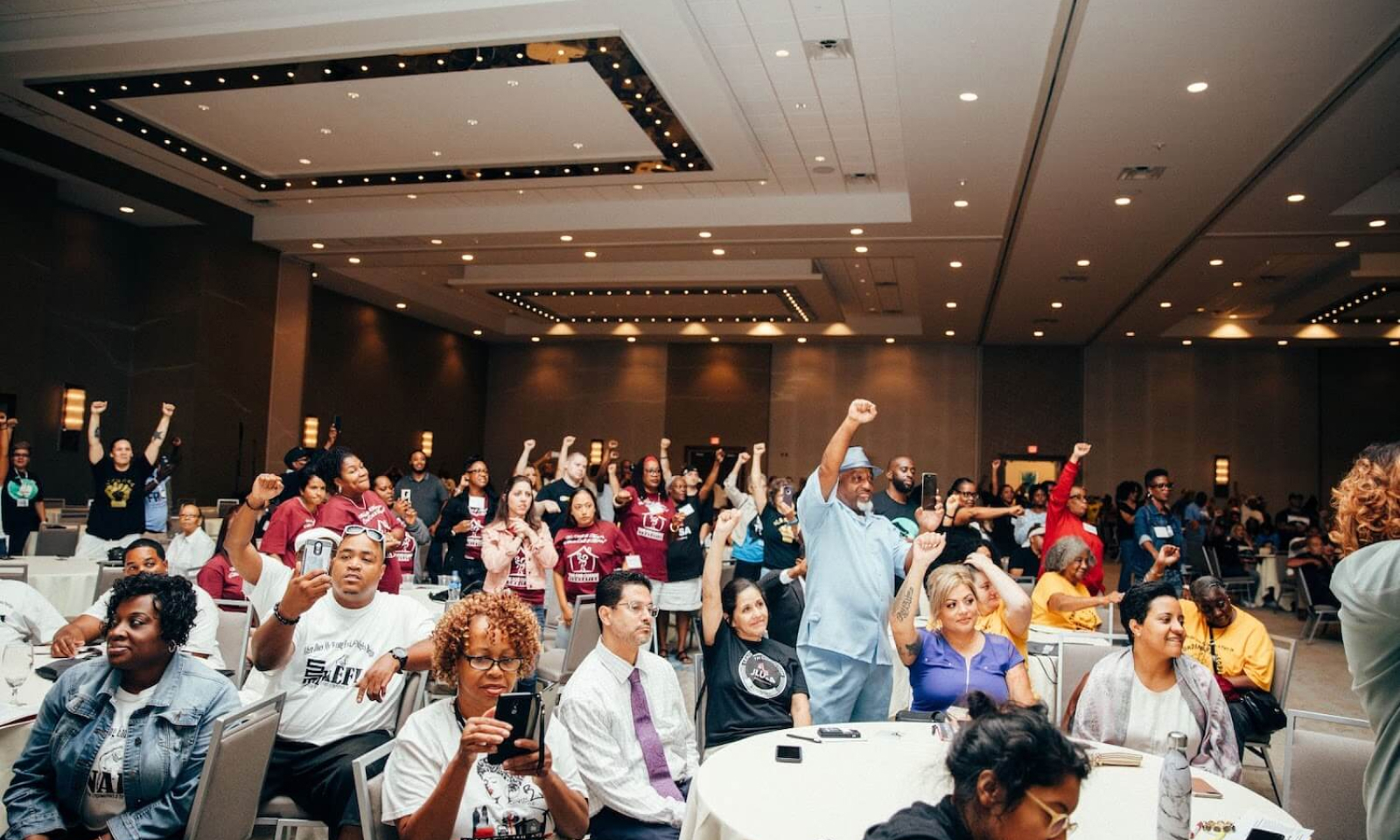
The work you’re doing is demanding, no doubt, so it’s important to take time and celebrate the victories. Any recent wins that you’re particularly proud of?
We hosted our biannual national gathering in Florida where we brought almost 1,000 formerly incarcerated people from 30 different states together. They engaged in interactive conference sessions and civic engagement. We canvassed door-to-door, sent text blasts, and made phone calls to encourage midterm election voting. Within the span of three hours we touched about 100,000 voters. These efforts later led to the restoration of voting rights to 1.4 million formerly incarcerated people.
The other win that I would lift up is the “Yes on Two” campaign in Louisiana that ended the practice of non-unanimous juries Louisiana. It was one of two states (Louisiana and Oregon) until recently where you could be convicted 10 to 2 instead of 12 jurors coming into unanimity around a verdict.
Both campaigns showed the power of the leadership of directly impacted people and the importance of touching our low-propensity voters, getting them civically engaged, and equipping them with the proper tools to create real change.
In March, I went to New Orleans to celebrate the “Yes on Two” amendment at the Governor’s Mansion. That was one of those opportunities to take a moment and kind of spike the football, if you will.
What goals has Forward Justice set for the year? How about your personal goals?
Personal goals are easy. Eat healthier. Sleep. [laughs]
As for Forward Justice, we’ll continue to support FICPFM with civic engagement retreats across the country. And then there’s planning for the 2020 national gathering and our next state-based campaigns to build on the momentum of our wins in Louisiana and Florida.
Not busy at all. Thanks for your work and your time, Daryl.
[laughs] Thank you.



